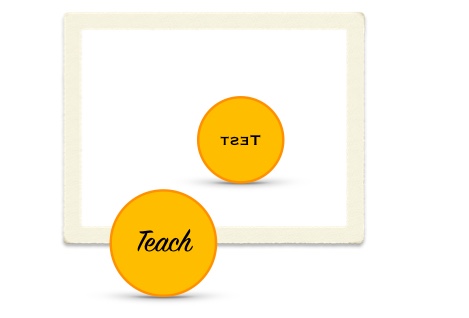In software companies, the people who develop programs are not the same as the people who test programs to see if they work. These groups are kept separate, because they have very different incentives.
Programmers have a strong incentive to show that their programs work. So they tend to make up softball test cases that they know will be successful. If they find out that the program is broken, they have to fix it, so they don’t try very hard to break it. This isn’t a criticism. It’s just human nature.
Testers have a strong incentive in the opposite direction, to find ways that the programs might fail. They get rewarded for that. So they think up all kinds of test cases that may never even have occurred to the programmers. And if they break a program, someone else has to fix it. How cool is that?
This seems like a pretty basic idea, right?
So it makes sense to ask: Why don’t we do this in schools? Except where standardized tests are involved, the people doing the teaching (who want it to have been successful) are also doing the testing (and thus want the tests to show that they’re doing a good job).
Schools can try to teach students, or try to verify what the students have learned, but asking them to do both is a recipe for… well, for exactly the kinds of results (90% graduation, 40% proficiency) that we’ve been getting from our schools.
As we consider how much we want to rely on remote learning and other low-interaction approaches to schooling, this might be a good time to start untangling teaching from testing. We might, for example, leave teaching to school districts, and transfer responsibility for testing to the state.
It’s not like the state would even have to invent new tests. There are perfectly good, privately-administered tests like the General Educational Development (GED) test, and the High School Equivalency Test (HiSET), which are already widely accepted as being reasonable measures of general readiness to get out and start contributing to society. And there are similar tests for particular academic subjects.
And it’s not like there aren’t longstanding precedents for this kind of thing. In the UK, for example, students to go school to learn, and sit for standard A-level and O-level exams to verify that they’ve learned something. Separation of teaching and testing.
It’s the places where we leave it up to an institution to both do a job, and judge how well it’s doing — for example, allowing the police to investigate themselves, or allowing courts to turn to other courts to evaluate their decisions — that everything goes off the rails.
As usual, the more you compare how our public school system works to how everything else in society works, the more you’re driven to conclude that, whatever that system is actually designed to do, educating kids isn’t it.
